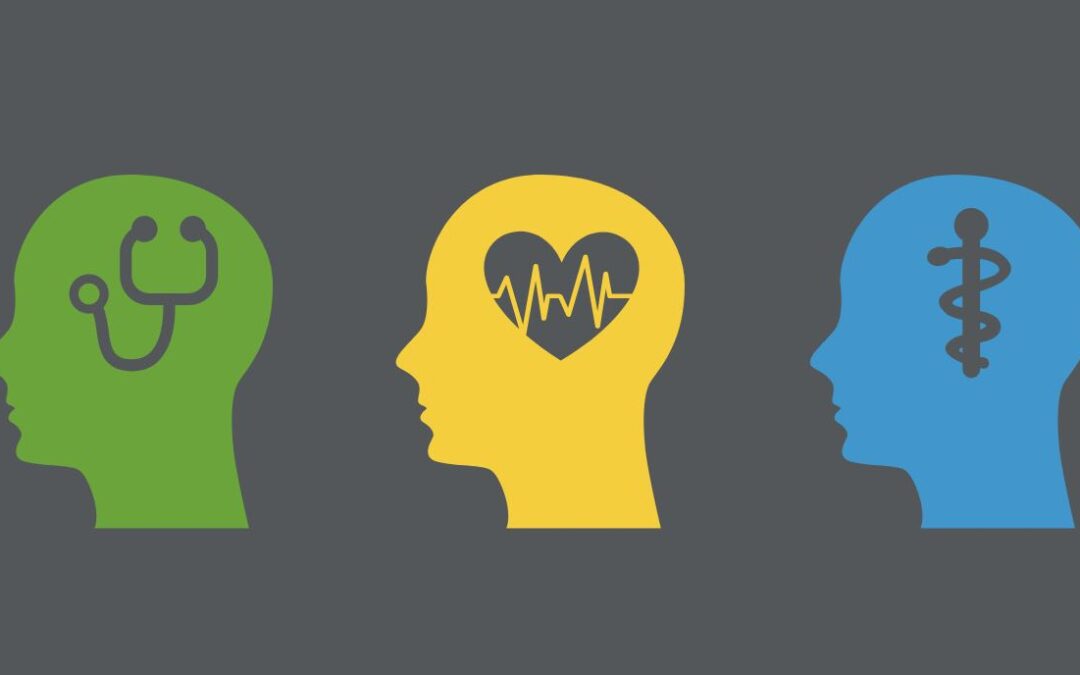While the month of May is Mental Health Awareness Month, and the week of May 5-11 is Children’s Mental Health Awareness Week, the state of mental health in our community ought to be a year-round concern. And yet, we are lacking as a country, and as a state. According to a 2018 study by Mental Health America (MHA), Indiana currently ranks 48th out of 51* in the Nation for mental health.
What exactly does that mean? It means that the people we drive past, walk by, and sit next to every day have a higher prevalence of mental illness with a lower rate of access to care than approximately 94% of the American population.
The Joseph Maley Foundation aims to serve children of ALL abilities, including those who experience mental illness, and over the past four years we developed, launched, and expanded our Health through Outreach, Personal Perspectives, and Engagement (HOPE) Program, which aims to combat the shocking statistics like the one above. The HOPE Program utilizes a multitude of components to teach students from pre-k through twelfth grade how to advocate for their own mental well-being, as well as that of their peers. During Children’s Mental Health Awareness Week, the Joseph Maley Foundation will be bringing you three different blogs, focusing on the experiences, goals, and accomplishments of three of our staff who impact HOPE.
We start with Dr. Jen Money-Brady. Jen is currently an assistant professor at Indiana Wesleyan University, as well as a licensed counselor with a Doctorate in Counselor Education and Supervision. Her focus is on counselor leadership, trauma, and grief. Jen also serves as a consultant for the HOPE Program, but as the program’s original manager, she knows its ins and outs extensively.
A former academic counselor at Brebeuf Jesuit Preparatory School, Jen knew that a program like HOPE was essential for the well-being of our community: “I knew I wanted to do more than what I could do in my academic counseling role,” she said, reflecting on a major mental health crisis that affected the school and the students during her time as counselor. “Because of the major mental health concerns, I was able to go to classes and present one mental health awareness lesson. Afterwards, the students gave me feedback, and many of them asked if they could just talk about mental health.” At the time, Jen was also assisting as a coordinator for the Joseph Maley Foundation’s Junior Board of Directors, on which many Brebeuf students sat. In speaking with the Junior Board, and JMF Executive Director and co-founder, Vivian Maley, the idea for HOPE came to be.
The program began originally with lessons aimed at a high school audience, but in speaking with schools, counselors, and Mental Health America of Indiana, JMF realized a need for mental health education starting as young as preschool. Jen recalls that after about a semester at Shortridge High School, where HOPE was first piloted, JMF was approached by Mental Health of America about an opportunity at the John H. Boner Community Center. The Boner Center, which offers after-school programming and summer camps to local Indianapolis youth, was a point of growth for HOPE: “Vivian and I met with them, and that was really the start of acknowledging that we could create these mental health lessons for younger students.”
HOPE is a program that encompasses more than just mental health and its surrounding stigma. Jen realized through her time at Boner Center and through more research that it needed to grow, “I realized that this program really needed to incorporate not just mental health, but exercise, and sleep, and healthy eating.” HOPE focuses on four pillars of overall health: mental, emotional, social, and physical, so that the program serves the whole child with individual lesson plans, activities, books, and speakers within each of the four pillars and for each grade level. “HOPE has such great connections to speakers, along with lessons, videos, and activities that it becomes a nice sort of package for schools, but it can also be pieced out. We’ve had schools who have just wanted a speaker and one lesson, which has been helpful, because it starts the conversation with that school, allowing the counselor to follow up with their students,” Jen said about the ease in which schools can implement the program.
The goals of HOPE have always centered around raising awareness about mental health, getting the conversation started, and educating the community. Jen has seen plenty of examples of these goals being realized. One moment in particular that she recalls vividly is when a student stood up and said, “I think I need help”, after a speaker had visited their classroom. “The school counselor was right there, and took immediate action. In the end they were able to get him the help he needed.”
The Joseph Maley Foundation’s HOPE Program aims to fill a significant need we have in our community. Indiana is suffering from a mental health crisis. With lesson plans for the some of the youngest among us, JMF starts the conversation early. HOPE helps to instill the belief that talking about your mental health is not something to be ashamed of, but something to celebrate. We know that mental health should not be a one month out of the year topic, rather, it should be a daily examination of how we are feeling, physically, emotionally, socially, AND mentally.
*The District of Columbia was examined as a separate state in this study.
